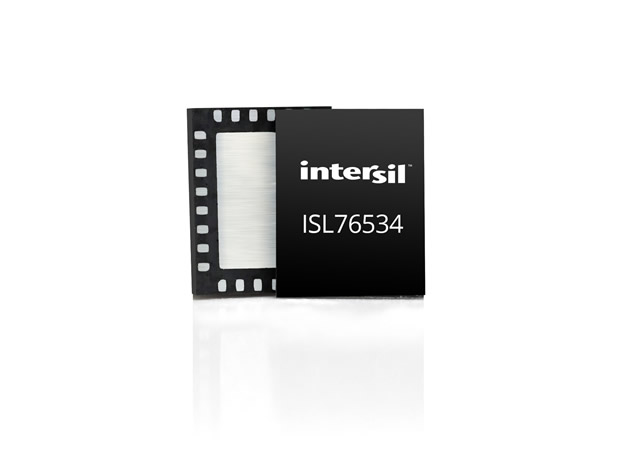Gamma buffer enables bright, high-contrast LCD displays
A provider of innovative power management and precision analogue solutions, Intersil, has announced the industry’s lowest power 14-channel programmable gamma buffer for automotive TFT-LCD displays. The automotive-grade ISL76534 delivers the highest accuracy gamma calibration to ensure consistent brightness and colour matching of every LCD panel inside a vehicle.
The ISL76534 is ideal for next gen LCDs designed for infotainment displays, Advanced Driver Assistance System (ADAS) smart mirrors and instrument cluster displays.
The robust ISL76534 provides engineers with one Vcom and 14 gamma channels with 10-bit resolution for fine-tuning the gamma curve. LCD panels that are not properly gamma corrected often appear bleached out or too dark. Engineers employ the ISL76534 to calibrate and store the gamma curve, guaranteeing that each LCD powers up and displays eye-pleasing images. The ISL76534’s internal EEPROM stores the factory-calibrated gamma and Vcom reference values, and enables significantly higher reliability than competitive devices by offering 10,000 write cycles and 20 years of data retention at 105°C.

The ISL76534 circuit architecture makes it easier to use than competitive solutions. No power-supply sequencing is required--either analogue or digital power supplies can startup first. At initialisation, all gamma buffer and Vcom output channels monotonically start up together in a controlled fashion preventing any possibility of an LCD panel lock-up. This adds another layer of reliability for ADAS and safety systems, such as backup cameras that rely on LCD panels to startup immediately and work flawlessly. In addition, the ISL76534’s high 75dB PSRR prevents power supply noise from reaching the gamma buffer outputs and becoming visible in the LCD panel.
The ISL76534 also provides the industry’s lowest power consumption at 56.6mW, which is 5x lower than the closest competitor. Its low maximum output current for analogue, digital, and Vcom supplies simplifies power supply and thermal design. The device’s low power dissipation also eliminates the need for heatsinks, prevents junction temperature overheating, and allows engineers to use lower cost LDOs instead of switching regulators.
“Carmakers are continuing to leverage a variety of displays to enable new features in next generation vehicles,” said Philip Chesley, Senior Vice President of Precision Products at Intersil. “Our 14-channel programmable gamma buffer ensures every vehicle’s LCD panels offer consistent rich colour and a uniform, visually appealing appearance drivers have come to expect from their electronics.”
Key features and specifications of ISL76534
- I2C programmable, 15-channel reference voltage outputs
- 14-channel gamma references, 10-bit resolution, buffered outputs with 60mA Iout and 5V/µs slew rate
- 1-channel Vcom calibrator, 10-bit resolution, 100mA (max) Iout and 5V/µs slew rate • Analogue supply operating range from 6.3 to 19V
- Digital supply operating range from 2.25 to 3.6V
- Ultra-low power consumption of 56.6mW simplifies power supply and thermal design
- Analogue AVDD max current of 2.5mA, amp AVDD max current of 1.2mA, and digital DVDD max current of 0.33mA
- Typical quiescent current power of 12mW at 8V
- High PSRR of 75dB typical at DC
- EEPROM data retention of 20 years at +105°C for extreme robustness and reliability
- EEPROM endurance of 10,000 write cycles
- Over-temperature protection against excessive die temperature
- AEC-Q100 Grade-2 qualified for operation from -40 to +105°C
System designers can create a complete TFT-LCD power supply by combining the ISL76534 with the ISL78419 TFT-LCD PMIC, ISL78206 40V 2.5A synchronous buck controller, and ISL78307 40V low Iq linear regulator. The ISL78171 6-channel, 50mA, LED backlight driver can be added to drive all infotainment and ADAS TFT-LCDs.



